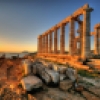.
CASE 2018

ABOUT THE COURSE
The CASE Summer School is a 5-day intensive course that introduces 3 case studies for creative science inquiry, namely Learning Science Though Theater, Puppetry and Learning through Art and Narratives for primary schools. The Summer School will increase the skills and competences to those that are interested to work with primary school students or are primary school teachers already.
CASE Summer School is open to all motivated:
- primary school teachers,
- primary school heads
- young researchers and in-service primary school teachers,
- artists
- science communicators
that are working with primary schools.
Strengthening the profile(s) of the teaching professions, including teachers, school heads and teacher educators, through actions with the following objectives:
- making careers more attractive;
- enhancing teachers’ professional development and linking its different phases in a continuum from Initial Teacher Education and induction to continuing professional development;
- supporting teachers in adopting collaborative and innovative practices;
- strengthening leadership in education, including the role and profile of school leaders, distributed leadership at school and teacher leadership.
CASE Summer School will increase primary school teachers’ skills through professional training activities, providing a creative science education methodology, positively impacting “learning to learn creatively” approaches and higher-order thinking skills, as well as extending professional understanding of what it means to develop ethically positioned creativity within science education and encouraging participative co-enquiry in relation to such pedagogy. Another teachers’ skill supported will be connectivity to the student’s cultural scene: Allowing to experience how science classes can literally touch the same nerve as creative activities enjoyed in their free time, will impact attitudes towards science education. The CASE pedagogical approach will allow for teachers and their students to share their outputs with peers on other participating countries, offering an identity of unity in creative arts-infused science education in primary level.
The CASE Summer School is a 5-day intensive course that introduces 3 case studies for creative science inquiry, namely Learning Science Though Theater, Puppetry and Learning through Art and Narratives for primary schools.
The participants will learn how to implement these approaches in the primary school setting. After the completion of the Summer School the participants will be able to pilot these approaches in their schools or to collaborate with schools and implement them.
More specifically the 3 implementation approaches that will learn are:
- Learning Science Through Theater: In this case teachers and students will be involved in the development of short or long performances that will have a scientific theme (physics, astronomy, mathematics, environment, energy, history of science, etc.). In the specific case guidelines will be produced for the teachers to be used in the training workshops but also to guide them in implementing this case within their classroom.
- Puppetry: Every activity starts with a story, acted out by hand puppets to awaken children's curiosity, motivating them to go on to discover and create using real materials from the world around them. The teachers and students should follow their story and develop relevant activities that could be enriched with relevant music and/or lyrics.
- Learning through Art and Narratives: Through the activities of this case, pupils (with the guidance of their teachers) produce their own “slowmation films” about science, and may thus contribute to the teaching and learning of science and of the nature of science.
The participants will get a full package of the toolkits for the 2 Cases in order to be prepared for the courses. They will need to be aware of the cases and start thinking of specific fields that they will implement activities during the summer school.
The participants will be contacted by the Organisers in order to get guides on how to use the toolkits.
.
The participants will have to realise activities in their countries in the following school year. According to their interest for one of the cases they will select a field and should implement activities in primary schools in their countries with the support of the CASE partners and Organisers of the summer school. During the Summer School and before the following school year they will be responsible to create web communities on the CASE website and portal (supported by ISE portal) according to the theme and the field that they will implement.
Also, they will have to fill in relevant reports from their implementation activities and send them to the Organisers of the Summer School.
.
COURSE DETAILS
The programme of the courses will be finalized in March 2018. Until then, in some cases you can download the related 2017 programme.
The Summer School is organized by Science View and the Research and Development Department of Ellinogermaniki Agogi which has long experience in organizing thematic summer schools and training courses (click here to see the list of past events).
.
.
About
The European Science Education Academy (ESEA) is a common effort of the European Physical Society, Ellinogermaniki Agogi, NUCLIO, and the Cardiff University to support the modernization and continuous development of STEM (Science, Technology, Engineering and Math) education and training. ESEA provides numerous training activities, tools and resources that will enable teachers in STEM to maximize their efforts in the design of inquiry based learning activities as well as to create motivating and engaging lessons that inspire young pupils and students to take up a career in STEM.
Read more
LATEST NEWS
-
11 Dec 2017
-
26 Oct 2017


